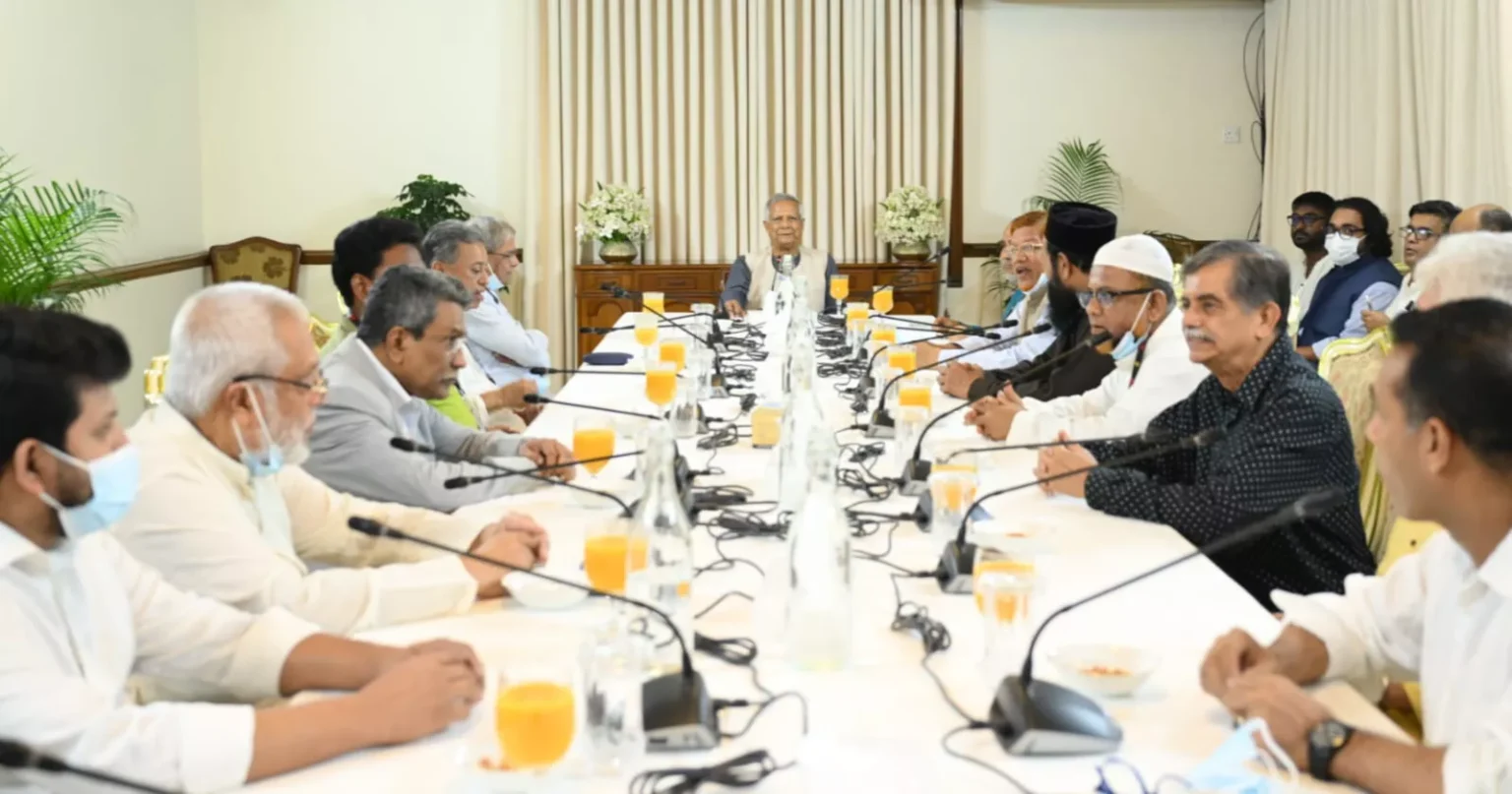Unable to cope with the growing turmoil, the interim government led by Muhammad Yunus has turned to political parties for support, amid fears that the Awami League — ousted in a popular uprising a year ago — may be working to destabilise the country’s fragile political landscape.
Recent incidents, including last week’s deadly clashes in Gopalganj, the military plane crash into Milestone School and College, and protesters breaching the Secretariat, have caught the government off guard, exposing its struggle to maintain order, political leaders believe.
They suggest that, with growing unrest and increasing difficulties in governance, the interim government is now under mounting political pressure and has little choice but to turn to political parties for cooperation.
Although the transitional government, formed after the fall of Sheikh Hasina’s administration, had pledged to end authoritarian rule and reform the electoral system, progress in this regard has been frustratingly slow.
Lack of experience in governance and mounting obstacles have hindered the interim administration’s ability to deliver on its promises, analysts say.
In less than 24 hours, Yunus has held meetings with leaders from more than 20 political parties in an effort to defuse the ongoing tense situation. On Wednesday, he met with 13 parties, following talks with senior figures from the Bangladesh Nationalist Party (BNP), Jamaat-e-Islami, Islami Andolon, and the National Citizens’ Party (NCP) on Tuesday night.
BNP Secretary General Mirza Fakhrul Islam Alamgir told Times of Bangladesh, “The chief adviser invited us, and we responded. We expressed our willingness to assist the government, but also warned that a non-political government would only deepen the crisis. We reiterated our demand for elections by February.”
“A section is deliberately creating law and order chaos. We brought down fascism through united protest. We won’t let it rise again,” alleged Jamaat-e-Islami’s Assistant Secretary General Hamidur Rahman Azad.
Gazi Ataur Rahman of Islami Andolon said the chief adviser had sought cooperation from all quarters to prevent any resurgence of “Awami fascism”.
The meetings were also attended by prominent political figures including Zonayed Saki of Gonosonghoti Andolon, Nurul Haque Nur of Gono Odhikar Parishad, Shahidullah Kaiser of Nagorik Oikya, Saiful Haque of the Revolutionary Workers Party, Redwan Ahmed of LDP, Mojibur Rahman Monju of AB Party, Bazlur Rashid Firoz of BSD, Ruhin Hossain Prince of CPB, Ahmad Abdul Quader of Khelafat Majlish, and Tania Rob of JSD.
The leaders discussed the recent deadly violence in Gopalganj during an NCP rally, which left at least five people dead. Participants criticised both the NCP and the government for their roles in the incident.
Concerns were also raised over NCP leaders being escorted out of Gopalganj under military protection, the following day’s BGB-guarded march in Faridpur, and clashes between BNP and NCP members in Chattogram’s Chakaria.
Government officials reportedly warned that if such confrontations continue nationwide, it may become impossible to contain the situation, and upcoming elections could be jeopardised. As a result, the government has called for political unity and coordination.
The crash of a Bangladesh Air Force training jet into Uttara’s Milestone School and College — which led to multiple fatalities and widespread student protests — has further unnerved the government.
Two top advisers were blockaded by students for nine hours and had to be escorted out by police — a rare and symbolic moment of public anger.
That same day, police baton-charged protesting students at the Secretariat in Dhaka, a move widely criticised by political parties. Protests also spread to cities including Barisal, Jessore, Cumilla, and Sirajganj.
At a subsequent meeting of the National Consensus Commission, several left-wing parties, including the CPB, BSD, and JSD, walked out in protest.
CPB leader Ruhin Hossain Prince said, “This government is behaving like a dictatorship. We cannot remain silent.”
Analysts argue that the advisers’ limited political and administrative experience has contributed to the government’s eroding image.
A year into its tenure, the administration is struggling with unrest, law enforcement failures, and growing public dissatisfaction.
While the move to fix an election timeline for February and seek political parties’ backing appears to be a strategic effort, observers note that the government’s ability to restore stability remains uncertain.


